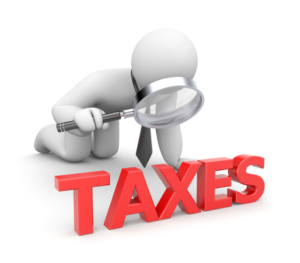
Image credit: Pinnacle PAC
Anyone who pays attention to the critical happenings in Ghana today can’t miss the Ghana Revenue Authority’s (GRA) quest to widen the tax net.
The tax collector is pushing for everyone to have a Tax Identification Number (TIN). They are equally pushing for certain critical public services to be accessible only to those who have TINs.
It is essential to point out that everyone having a TIN will not automatically ensure an increase in revenue generation for government. There is a need to carefully look at the entire economy and identify value creation activities then see how best to draw-in some more contributions into the tax basket.
Ghana’s economy is growing digitally. Almost everyone today is getting involved, somehow, in the digital space. They are either on the user-side or seller-side of the digital transaction.
In this article, I will attempt to help identify the various value creation digital activities one can find in Ghana’s digital space today. Taking cues from the Annette Nellen analysis of the widely published activities of the Organisation for Economic Cooperation and Development (OECD) – the body tasked with looking at how best to tax the growing digital ventures.
According to Professor Annette, there are three main categories of activities that can be seen in growing digital economies. These are: selling of goods and services online; enhancing business transactions using the Internet; and possession and usage of virtual currencies.
As a digital entrepreneur myself, I fully understand the challenges facing electronic business owners. However, there are number of value creation activities within the digital space. The challenge for tax collectors all over the world has to do with the non-nexus nature of most e-business activities.
I don’t know what’s on thte GRA’s table, but I can imagine the conundrum they might face as they work to expand the tax net. This is because the models within digital space are constantly changing – and that will need continuous policy changes to keep up.
e-Commerce
Very visible today in Ghana’s digital space are the likes of Jumia, Africakart.com, Zoobashop and Superprice, which are mainly e-Commerce platforms offering products and services. Traditional retail and wholesale giants such as Melcom, Electroland and Electromart have all joined the e-Commerce ecosystem.
There is also a growing number of people who are offering their goods and services on foreign-owned online platforms such as Facebook and Instagram and Twitter. Some have well-defined pages or groups via which they advertise their offerings. There are some others who just once in a while post their unwanted items for sale.
Underlining the above are emerging companies which are helping to deliver items purchased online. These delivery service providers are playing a vital role in the e-Commerce space.
Of course, the e-Commerce business model brings with it various auxiliary services. These include the likes of hubtel, which provides SMS services to enhance customer relationships in the space. There are also those offering payment gateway services to e-Commerce platforms.
Blogging & Affiliate Marketing
There are also various blogging and affiliate marketing activities in Ghana’s digital space. Income is being generated via these websites, and link-sharing is creating value for patrons.
Online Betting
Online betting and lottery is also here with us. People are now placing bets conveniently on their phones using virtual money and winning in the same, and keeping e-values for onward transactions. From NLA to the likes of mybet.com, betway.com etc., online gaming activities can also be fully considered in the tax expansion agenda.
Mobile Money & Virtual Currencies
Mobile money transactions have over the years seen a lot of growth, and have indeed helped many non-banking people to become financially inclusive. There are concerns which have been raised that a tax consideration for the mobile money sector will kill it. I don’t think so. In the digital space, people are ready to pay a little more to get the convenient service they desperately need. I remember when MTN introduced some tough policies which included forcing subscribers to use their own mobile money wallet for transfers; many thought that would discourage usage. Usage never dwindled.
I am saying this because, at mobile money agent points today, people are paying a little more for agents to do transfers on their behalf. The percentage of transaction-fee to be taxed can be made very minimal so as not to wane usage.
Cashing-in today at any mobile money agent stand is free: that is good. However, onward usage such as transfers attracts a charge. Maybe tax can come in only during cash-out.
There are also people here in Ghana who own and transact in bitcoin and make gains. How best do we bring them into the tax bracket in ways that will not hurt its growth?
Sales Tax or Use Tax?
One of the identified challenges facing tax collectors all over the world has to do with proper definition of the type of tax to enforce for specific digital activities. Do we do ‘sales tax’ for some sets of digital activities while for others it’s ‘use tax’?
We all know that sales tax or pass-through tax is charged on sale or lease of goods or services at the point of sale. Sellers/Providers are tasked to collect this from customers on behalf of GRA, for example, and remit to the government agency later.
However, Use Tax comes to play in situations where Sales Tax is not practical or not charged, and is mainly charged to either the seller or buyer.
A lot of consideration must be done by the tax collector, in our case GRA, in order to determine the tax issues in our growing digital economy. There is a need to fully exhaust the objectives and objections before any implementation is made, in order not to hamper the increasing rate of digital growth.










